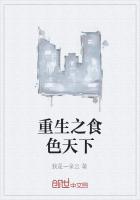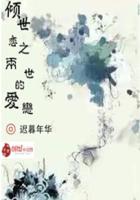All these reforms were voluntarily effected by the Emperor a few years later, but the manner in which they were suggested seemed to savour of insubordination, and was a flagrant infraction of the principle that all initiative in public affairs should proceed from the central Government. New measures of repression were accordingly used. Some Marshals of Noblesse were reprimanded and others deposed. Of the conspicuous leaders, two were exiled to distant provinces and others placed under the supervision of the police. Worst of all, the whole agitation strengthened the Commission by convincing the Emperor that the majority of the nobles were hostile to his benevolent plans.*
This was a misinterpretation of the facts. Very many of those who joined in the protest sincerely sympathised with the idea of Emancipation, and were ready to be even more "liberal" than the Government.
When the Commission had finished its labours, its proposals passed to the two higher instances--the Committee for Peasant Affairs and the Council of State--and in both of these the Emperor declared plainly that he could allow no fundamental changes. From all the members he demanded a complete forgetfulness of former differences and a conscientious execution of his orders; "For you must remember," he significantly added, "that in Russia laws are made by the Autocratic Power." From an historical review of the question he drew the conclusion that "the Autocratic Power created serfage, and the Autocratic Power ought to abolish it." On March 3d (February 19th, old style), 1861, the law was signed, and by that act more than twenty millions of serfs were liberated. A
Manifesto containing the fundamental principles of the law was at once sent all over the country, and an order was given that it should be read in all the churches.
It is sometimes said that forty millions of serfs have been emancipated. The statement is true, if we regard the State peasants as serfs. They held, as I have already explained, an intermediate position between serfage and freedom. The peculiar administration under which they lived was partly abolished by Imperial Orders of September 7th, 1859, and October 23d, 1861. In 1866 they were placed, as regards administration, on a level with the emancipated serfs of the proprietors. As a general rule, they received rather more land and had to pay somewhat lighter dues than the emancipated serfs in the narrower sense of the term.
The three fundamental principles laid down by the law were:--
1. That the serfs should at once receive the civil rights of the free rural classes, and that the authority of the proprietor should be replaced by Communal self-government.
2. That the rural Communes should as far as possible retain the land they actually held, and should in return pay to the proprietor certain yearly dues in money or labour.
3. That the Government should by means of credit assist the Communes to redeem these dues, or, in other words, to purchase the lands ceded to them in usufruct.
With regard to the domestic serfs, it was enacted that they should continue to serve their masters during two years, and that thereafter they should be completely free, but they should have no claim to a share of the land.
It might be reasonably supposed that the serfs received with boundless gratitude and delight the Manifesto proclaiming these principles. Here at last was the realisation of their long-
cherished hopes. Liberty was accorded to them; and not only liberty, but a goodly portion of the soil--about half of all the arable land possessed by the proprietors.
In reality the Manifesto created among the peasantry a feeling of disappointment rather than delight. To understand this strange fact we must endeavour to place ourselves at the peasant's point of view.
In the first place it must be remarked that all vague, rhetorical phrases about free labour, human dignity, national progress, and the like, which may readily produce among educated men a certain amount of temporary enthusiasm, fall on the ears of the Russian peasant like drops of rain on a granite rock. The fashionable rhetoric of philosophical liberalism is as incomprehensible to him as the flowery circumlocutionary style of an Oriental scribe would be to a keen city merchant. The idea of liberty in the abstract and the mention of rights which lie beyond the sphere of his ordinary everyday life awaken no enthusiasm in his breast. And for mere names he has a profound indifference. What matters it to him that he is officially called, not a "serf," but a "free village-
inhabitant," if the change in official terminology is not accompanied by some immediate material advantage? What he wants is a house to live in, food to eat, and raiment wherewithal to be clothed, and to gain these first necessaries of life with as little labour as possible. He looked at the question exclusively from two points of view--that of historical right and that of material advantage; and from both of these the Emancipation Law seemed to him very unsatisfactory.
On the subject of historical right the peasantry had their own traditional conceptions, which were completely at variance with the written law. According to the positive legislation the Communal land formed part of the estate, and consequently belonged to the proprietor; but according to the conceptions of the peasantry it belonged to the Commune, and the right of the proprietor consisted merely in that personal authority over the serfs which had been conferred on him by the Tsar. The peasants could not, of course, put these conceptions into a strict legal form, but they often expressed them in their own homely laconic way by saying to their master, "Mui vashi no zemlya nasha"--that is to say. "We are yours, but the land is ours." And it must be admitted that this view, though legally untenable, had a certain historical justification.*
See preceding chapter.















